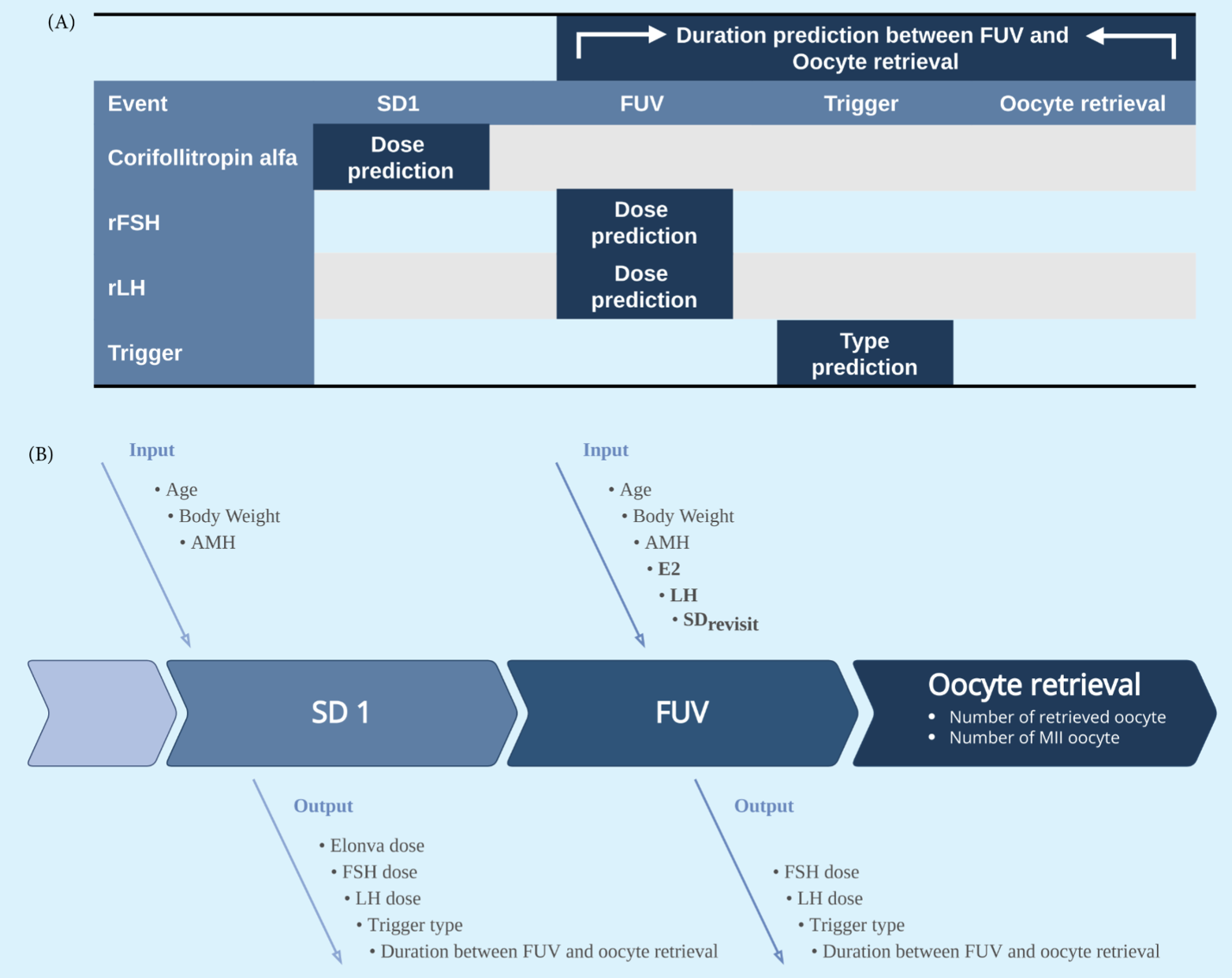Abstract
Background
To demonstrate an interpretable machine learning (ML) model for a clinical prediction of corifollitropin alfa protocol.
Methods
The retrospective study involved 1,221 cycles from 1,180 patients undergoing corifollitropin alfa protocol with oocyte retrieval events from a single in vitro fertilization (IVF) center. The ML models were assigned to the following tasks, which are the dosage of corifollitropin alfa, trigger type, the dosage of recombinant FSH (rFSH), the dosage of recombinant LH (rLH), the duration between the follow-up visit (FUV), and oocyte retrieval. Interpretable SHapley Additive exPlanations (SHAP) were selected to analyze the input features. The ranking of the prediction powers from each input feature reveals the level of contribution to the model.
Result(s)
Two series of interpretable ML models were developed to predict classification tasks and regression tasks. The areas under ROC (AUC) for predicting the dosage of corifollitropin alfa and trigger type were 0.933 (95% CI 0.907–0.958) and 0.891 (95% CI 0.864–0.918), while accuracies were 0.944 and 0.904. The mean absolute errors (MAEs) that predict the dosage of rFSH, the dosage of rLH, and the duration between the FUV and oocyte retrieval were 97.08 IU (rFSH), 105.61 IU (rLH), and 0.45 days.
Conclusions
The study demonstrates a set of interpretable ML models predicting tasks involved in corifollitropin alfa protocol. The potential for the clinical application is to provide consistency in corifollitropin protocol adjustments.
Authors
Hsing-Hua Lai, Esther En-Shu Kuo, Ryh-Sheng Li, Tzu-Hsuan Chuang, Yao-Cheng Huang, Jhih-Yuan Hsieh, T. Arthur Chang, Yulun Huang, Wen-Ting Hsieh, Yan-Ru Su, and Mark Liu
More Information
Fertility & Reproduction
Published: 13 August 2021
https://www.worldscientific.com/doi/10.1142/S2661318223500068

